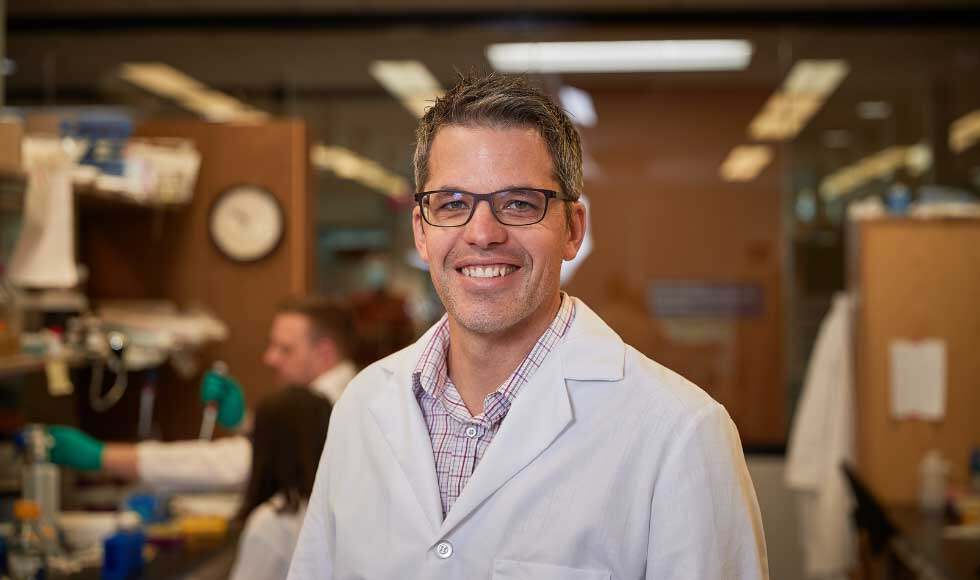

The American Academy of Microbiology (AAM) has elected McMaster University’s Brian Coombes to its 2023 class of fellows.
An honorific leadership group within the American Society for Microbiology, AAM fellows are elected annually through a highly selective, peer-review process based on records of scientific achievement and original contributions that have advanced the field of microbiology.
“Academy fellowship represents a prestigious honor, and it is my pleasure to congratulate and welcome Brian Coombes to the 2023 class,” says Arturo Casadevall, chair of the Academy Governors. “Fellows are an exceptional group of scientists whose contributions have moved the field forward and whose expertise serves both science and society.”
Coombes, a professor and chair of McMaster’s Department of Biochemistry & Biomedical Sciences and a member of the Michael G. DeGroote Institute for Infectious Disease Research, has been elected for his renowned microbiology research program, which focuses primarily on host-pathogen interactions, innate immunity and Crohn’s disease.
For Coombes, conducting research in these distinct-but-interconnected areas has been entirely made possible by the diversity of perspectives found in his lab.
“To really push the envelope and advance the science, it’s important to think on the margins,” says Coombes, whose research also supports Canada’s Global Nexus for Pandemics and Biological Threats. “So, in addition to microbiologists, we also have cell biologists, molecular biologists and people who are interested in immunology all working together in my lab.”
“THEY HAVE ALL BEEN TRAINED A LITTLE BIT DIFFERENTLY, THEY ALL THINK A LITTLE BIT DIFFERENTLY, AND SO THEY ALLOW US TO STUDY MICROBIOLOGY A LITTLE BIT DIFFERENTLY.”
Receiving the distinction has given Coombes a reason to pause and reflect on his work to date; however, when discussing his research, it is actually the future that excites him most.
The Coombes Lab is currently studying how psychological stress can impact microbes in the gastrointestinal tract, while also working aggressively toward establishing better understandings of Crohn’s disease pathogenesis and the bacterial components of inflammatory bowel disease. They are also exploring host-pathogen interaction in new antibiotic-resistant strains of Salmonella that are emerging in places like Africa, Asia and South America.
“For many of these infections, there’s no pill on the shelf to help you, so we’re taking interesting approaches to finding solutions,” Coombes says. “For example, in the case of invasive Salmonella, we’re screening for new chemical matter that could kill the pathogen directly as well as new chemical matter that could enhance the immune system so that it could combat these pathogens that drugs can’t.”
Joining Max Chernesky (1965), Gerry Wright (2013), Cameron Currie (2014), James Mahony (2015), Eric Brown (2016), Lori Burrows (2017), Michael Surette (2018) and Marie Elliot (2021), Coombes is now the ninth McMaster-based scientist to be named an AAM fellow, which is the highest volume for any Canadian institution (tied with the University of British Columbia).
“McMaster is known to be one of the best places in all of Canada to study microbiology,” Coombes says. “This core strength has been built up and sustained over decades and continues to attract top talent at all levels. The future of microbiology at McMaster is bright.”



































